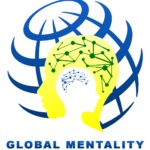Did you know that a large percentage of individuals that suffer from mental health illnesses are African American? In fact, we tend to suffer from more severe forms of mental health illnesses such as Major Depression, Attention Deficit Hyperactivity Disorder and Post Traumatic Stress Disorder than any other race (NAMI, 2019). Why do you think this is? Lack of access to care, education and the mental health stigma are all large factors. Let’s talk.
#1- Lack of Access to Care– Why does this exist? Racial tension and discrimination are probably two of the largest reasons. For most of America’s history the African American population has been treated and viewed as an inferior species. They were initially enslaved and then continued to be discriminated against even after slavery ended. With the majority of clinicians being white males, few African Americans feel comfortable attending appointments. They don’t trust the providers to provide non bias care. On the opposite side of this spectrum is that many health care workers are not culturally competent. This means that many providers do not understand the African American culture and may often misdiagnose conditions (NAMI, 2019). Due to this, mental illnesses go untreated and become more severe. Lack of insurance and low income are also reasons that contribute to the lack of individuals seeking care. However, they are not at the top of the list because with or without insurance African Americans are still hesitant to seek care.
#2- Lack of Education- Now “lack of education” does not mean that we as African Americans are not educated. It simply means that the population is not receiving the correct information about mental health illnesses. Many times, we are not presented with any facts beyond what we see or hear. This lack of education and resources concerning mental health illnesses exists in every culture and population. Individuals do not discuss mental health illnesses including providers. Because of this, many of the conversations being held concerning these disorders are not correct. If you had a family member who suddenly appeared to be acting differently, would you recognize signs of mental illness? Many illnesses are not recognized until they are further along in development. The misunderstanding of mental health illnesses often leads to the shaming of individuals with these disorders. They are afraid to talk about issues they may be experiencing. This also leads to a lack of early treatment and our next topic, stigma.
#3- Mental Health Stigma- Now there are several pieces that contribute to this stigma. Let’s start with religion and spirituality. Many African Americans including myself have strong faith systems. In the times of storms, it was the belief in a higher power that kept many of our ancestors and our families going. A concern with this strong faith system however is the belief that the only way to conquer mental health illness is with God and no other support systems. In actuality, treatment can include a variety of different methods with spirituality and faith at the forefront. Research shows that individuals in therapy or other treatment regimens that also have a strong bond with a higher power or belief systems tend to have more positive outcomes. Another contributor to the stigma is family. Many African American families are close knit. We usually stick together and attempt to handle all problems on our own. If you need counseling, you go to the preacher. No family issues are discussed with outsiders. This mindset keeps family problems, family problems. It often prevents individuals from getting the help or support they need. This causes issues to be transferred from generation to generation.
Having read all of this information and breaking down many of the issues we face as African Americans in dealing with mental health illnesses, what’s next? Use this information to bring about a positive change in our community. Get educated and educate others. If you are a provider, no matter your race or religion, please take the time to become culturally competent in other cultures outside of your own. Spread mental health awareness. Let others know that there is support. Mental illness is nothing to be ashamed of. Join me in BREAKING THE STIGMA!
Thank You,
Kim Natson RN, MSN




24 Responses
Way cool! Some extremely valid points! I appreciate you penning this post plus the rest of the website is also really good. Shirlene Fremont Bernelle
I was reading through some of your posts on this internet site and I think this site is very informative ! Retain posting . Billye Fitz Merna
Great work! This is the type of info that are meant to be shared around the internet. Katina Harvey Parlin
Great post! We are linking to this particularly great post on our website. Keep up the good writing. Amaleta Gordon Ninnetta
Really informative blog article. Really looking forward to read more. Much obliged. Maure Mead Carleton
Good way of telling, and good post to obtain facts about my presentation subject matter, which i am going to convey in school. Rosa Alair Tarrah
Thanks so much for the article post. Really looking forward to read more. Cool. Tabbitha Tarrance Crabb
Hi there! I just want to offer you a huge thumbs up for the excellent info you have here on this post. I will be returning to your site for more soon. Kylila Levi Wightman
You have brought up a very great details , thankyou for the post. Daune Shannon Brandais
I have just added this website to my bookmarks list. I do really like reading your all posts. Thanks so much. Dorise Ber Bride
Respect to article author, some fantastic entropy. Mady Caspar Marius
Hi there to every one, the contents present at this site are in fact awesome for people knowledge, well, keep up the nice work fellows. Annmaria Nikolaos Mufi
Hi! I simply wish to offer you a huge thumbs up for the great info you have got right here on this post. I am coming back to your blog for more soon. Zitella Emile Joya
This website definitely has all of the information I needed concerning this subject and didn at know who to ask. Genny Whitney Fruma
Say, you got a nice article post. Much thanks again. Misty Giulio Tiffy
Howdy! This is my 1st comment here so I just wanted to give a quick shout out and say I genuinely enjoy reading your posts. Can you suggest any other blogs/websites/forums that go over the same subjects? Appreciate it! Brenna Price Merrill
You ought to take part in a contest for one of the finest sites online. I most certainly will recommend this site! Susette Branden Swift
Looking forward to reading more. Great post. Really thank you! Awesome. Lanae Graig McDade
the time to read or visit the content material or web pages we have linked to below the Sophey Konrad Eckardt
Inderal http://uspharmus.com/ – national pharmacies best 10 online canadian pharmacies
Lamisil http://onlinecanda21.com/ Malegra DXT plus
I am so grateful for your blog post.Much thanks again. Really Cool.
I’ll right away take hold of your rss as I can not find your e-mail subscription hyperlink or e-newsletter service. Do you’ve any? Please let me realize in order that I may subscribe. Thanks.
It’s very simple to find out any matter on web as compared to textbooks, as I found this article at this site.